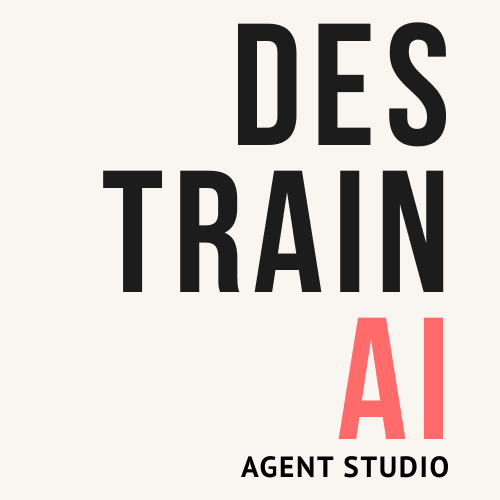Your tools need AI access. Your customers expect it too.
JP
AI agents are revolutionizing busines processes and supercharging teams in their daily work. They don't only assist but actually get things done by reasoning and performing actions using the same everyday tools people are using in their work. For this they need the USB-C of integrations, the Model Context Protocol or MCP. [Read more on that from our previous blog on How do AI Agents actually do things?]
This Model Context Protocol revolution is changing everything about business tool integration. Tools that were never on your "integration radar" are suddenly becoming critical for AI agent workflows. Error tracking systems, project management platforms, communication tools and services you've always accessed manually are now expected to work seamlessly with AI agents.
But here's what might surprise businesses starting to deploy AI agents: many modern, everyday tools still lack the comprehensive programmatic access that agents prefer. No API. No CLI. No filesystem access. And certainly no MCP integration. It's not a blocker but a speed bump.
This isn't just about what tools you use anymore. It's about a fundamental shift and it's happening on two fronts:
- are your everyday tools ready for the MCP world
- are the services you provide prepared for customers who expect MCP compatibility?
The Two-Sided MCP Reality
This transformation is hitting businesses from both directions:
As a tool consumer: Are your everyday SaaS business tools easily integratable with AI agents? Can your agents actually work with your error tracking, project management, analytics, and communication platforms? Or will you need complex automation workarounds for tools that should offer direct access?
As a service provider: Are your services ready for customers who expect MCP integration? When your clients start deploying AI agents, will your platform be the one that "just works" or the one that requires expensive workarounds?
The businesses recognizing both sides of this shift are the ones preparing for competitive advantage.
The Great Tool Migration
Take Google Firebase Crashlytics – used to manage millions of mobile apps daily, yet lacking API and CLI access for the basic operations that AI agents need to perform. And that is just one of the tools that feel thoroughly modern still operate with limited programmatic access. This pattern might be more common than many businesses initially realize.
This is creating rapid market pressure, especially for tools where switching costs are low and alternatives exist.
We're entering a period where integration capability will drive tool selection like never before. In SaaS categories where options are plentyful and switching costs are reasonable – error tracking, project management, analytics platforms, communication tools – the pressure to offer proper programmatic access is intensifying rapidly.
Why? Because when your competitor's AI agents can seamlessly work with their entire tool stack while yours require manual intervention or complex automation, the productivity gap becomes unmistakable.
At Des Train AI, we're expecting this pattern to accelerate. Companies evaluating new tools now ask about MCP compatibility upfront. Existing tools without proper API access are getting replaced, especially in categories where migration is straightforward.
If switching is easy it should be done
Everything can be integrated with AI agents – that's not the question. The question is efficiency and competitive timing.
When switching costs are high (legacy enterprise systems, specialized industry software, deeply embedded workflows), building computer use automation for MCP use makes perfect sense. These integrations are worth the complexity.
But when switching costs are low? When modern alternatives with native MCP support exist? When the tool is used frequently by agents? The calculation changes completely.
This is should be rapid change in easily-switchable tool categories. And the tools that don't adapt quickly are losing customers to competitors who understand the new integration reality.
And especially if you provide any tools, services or interfaces online including portals and websites - even for consumers. For a service provide the shift represents both risk and massive opportunity.
The risk: Your internal processes, customers and partners will start expecting AI agent compatibility. If your platform requires complex workarounds while competitors offer direct integration, you'll lose to "the one that just works with our agents."
The opportunity: Being MCP-ready positions you as the forward-thinking choice. When prospects are evaluating tools for their AI-enabled workflows, comprehensive integration support becomes a decisive factor.
Companies doing their MCP implementation now will have competitive advantages over those waiting to see how the market develops.
The change is silent
This isn't a distant future consideration. AI agents are being deployed today, and their integration requirements are driving tool selection decisions right now.
The question isn't whether MCP compatibility will matter. It's whether you make the right choices right now, both internally and with the broad spectrum of services you provide externally.
The AI agent revolution is incremental and is happening within the everyday business processes. There will be no press releases of the agent deployments from your competitors. You'll know when you see them pass you due to their increased efficiency and quality it's already too late. But what if you could be the one on the driver's seat?
Ready to evaluate both sides of your MCP readiness? The companies moving fastest are auditing their tool integration gaps while simultaneously planning their service integration capabilities. Contact us to develop a strategy that addresses both your tool consumption and service provision in the MCP-enabled future.
Interested to discuss more? Book a meeting!
---
Jonas Pomoell is the founder and lead AI business consultant at Des Train AI Oy, specializing in deploying transformative generative AI solutions. With deep expertise in Model Context Protocol implementation and business tool integration strategy, Jonas helps companies navigate both the consumption and provision sides of the AI agent integration revolution.
[The cover image taken 19.8.2025, real life questionnaire for paying users from widely used tranlsation and localization platform Phrase]
